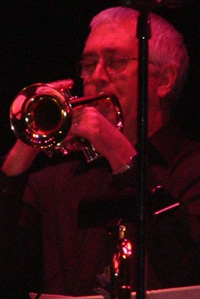
Phil Person
Position
Assistant Professor
Affiliated Departments
Telephone
617-747-8735
For media inquiries, please contact Media Relations
Career Highlights
- Leader of the Phil Person Sextet, Quintet, and Quartet
- Member of the Artie Shaw Orchestra, White Heat Swing Orchestra, Swing Legacy, and Duke Belaire Jazz Orchestra
- Performances with Al Grey, Buddy Defranco, Tony Bennett, Keely Smith, Jack Jones, Scott Hamilton, Dick Johnson, Phil Wilson, Kay Starr, Steve Lawrence and Eydie Gorme, Margaret Whiting, the Tommy Dorsey Orchestra (directed by Buddy Morrow), Alan Dawson, Ricky Ford, Howard Johnson, and Ray Santisi, among others
- Recordings include the Phil Person Sextet’s Personology, the New England Jazz Ensemble’s Version 3.0 and Storm Before the Calm, and Swing Legacy’s Dancing on a Blue Moon
In Their Own Words
